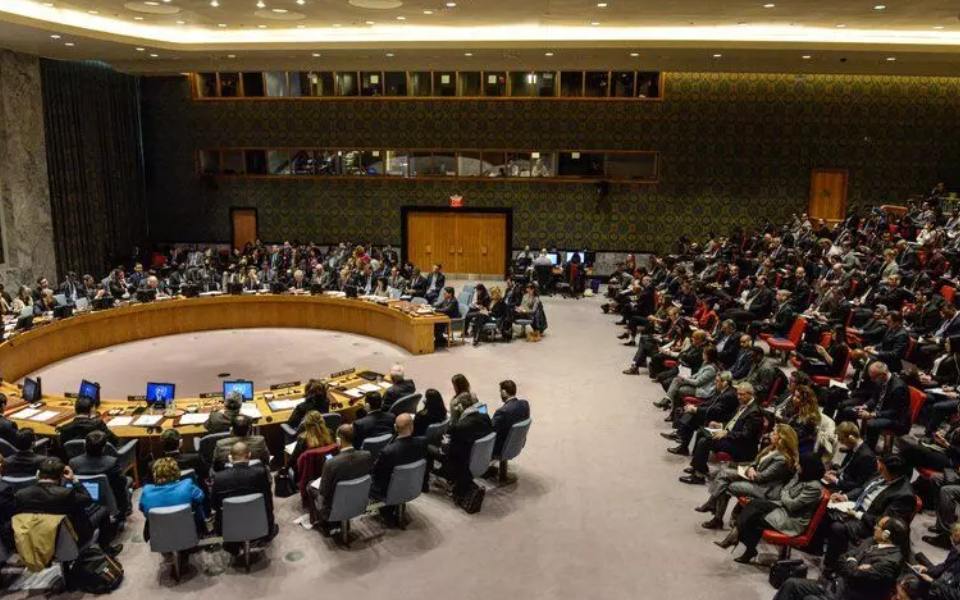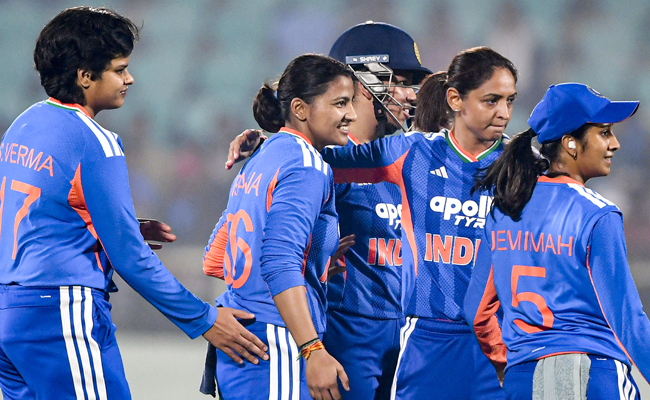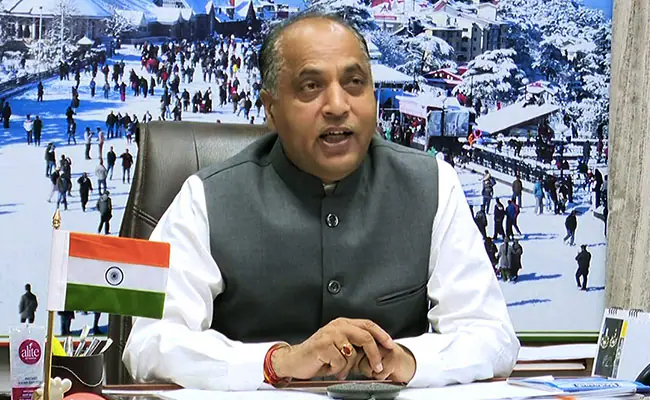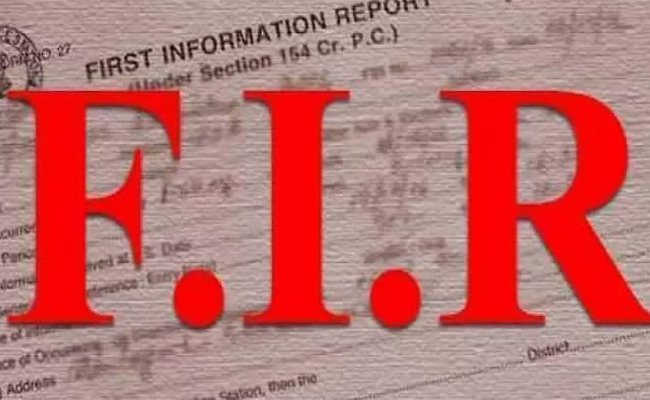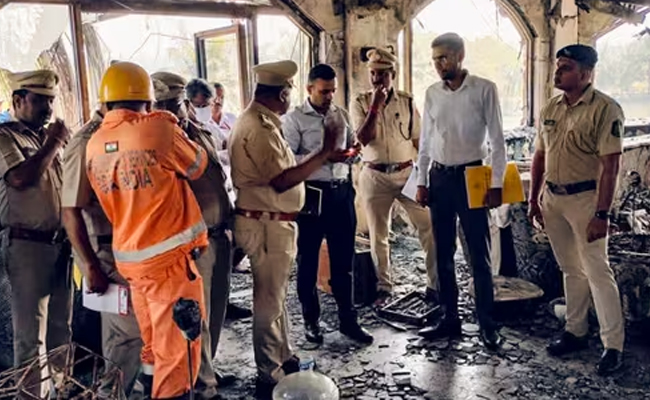United Nations, Mar 22: Russia and China on Friday vetoed a US-sponsored UN resolution calling for "an immediate and sustained cease-fire" in the Israel-Hamas war in Gaza to protect civilians and enable humanitarian aid to be delivered to more than 2 million hungry Palestinians.
The vote in the 15-member Security Council was 11 members in favour, three against and one abstention.
Before the vote, Russia's UN Ambassador Vassily Nebenzia said Moscow supports an immediate cease-fire, but he questioned the language in the resolution and accused US Secretary of State Antony Blinken and US Ambassador Linda Thomas-Greenfield of "misleading the international community" for "politicized" reasons.
Earlier, US Ambassador Linda Thomas-Greenfield said she was optimistic that the new, tougher draft resolution would be approved Friday by the 15-member council.
The draft being put to a vote "determines" which is a council order "the imperative of an immediate and sustained cease-fire," with no direct link to the release of hostages taken during Hamas' October 7 attack on Israel, which was in the previous draft. But it would unequivocally support diplomatic efforts "to secure such a cease-fire in connection with the release of all remaining hostages."
Russia's deputy UN ambassador Dmitry Polyansky said Moscow will not be satisfied "with anything that doesn't call for an immediate cease-fire," saying it's what US Secretary of State Antony Blinken is pressing for and what "everybody" wants. He questioned the wording of the draft, asking, "What's an imperative? I have an imperative to give you USD 100, but it's only an imperative, not USD 100."
"So, somebody's fooling around, I think, (with the) international community," the Russian envoy said.
The Security Council had already adopted two resolutions on the worsening humanitarian situation in Gaza, but none calling for a cease-fire.
Russia and China vetoed a US-sponsored resolution in late October calling for pauses in the fighting to deliver aid, protection of civilians, and a halt to arming Hamas. They said it didn't reflect global calls for a cease-fire.
The US, Israel's closest ally, has vetoed three resolutions demanding a cease-fire, the most recent an Arab-backed measure supported by 13 council members with one abstention on February 20.
A day earlier, the US circulated a rival resolution, which has gone through major changes during negotiations before Friday's vote. It initially would have supported a temporary cease-fire linked to the release of all hostages, and the previous draft would have supported international efforts for a cease-fire as part of a hostage deal.
The vote took place as Blinken, America's top diplomat, is on his sixth urgent mission to the Middle East since the Israel-Hamas war, discussing a deal for a cease-fire and hostage release, as well as post-war scenarios.
Nate Evans, the spokesperson for the US Mission to the United Nations who announced the Friday morning vote, said: "This resolution is an opportunity for the Council to speak with one voice to support the diplomacy happening on the ground and pressure Hamas to accept the deal on the table."
Meanwhile, the 10 elected members of the Security Council have been drafting their own resolution, which would demand an immediate humanitarian cease-fire for the Muslim holy month of Ramadan that began March 10 to be "respected by all parties leading to a permanent sustainable cease-fire."
It also demands "the immediate and unconditional release of all hostages " and emphasizes the urgent need to protect civilians and deliver humanitarian aid throughout the Gaza Strip.
Hamas group killed some 1,200 people in the surprise October 7 attack into southern Israel that triggered the war, and abducted another 250 people. Hamas is still believed to be holding some 100 people hostage, as well as the remains of 30 others.
In Gaza, the Health Ministry raised the death toll in the territory Thursday to nearly 32,000 Palestinians, says women and children make up two-thirds of the dead.
The international community's authority on determining the severity of hunger crises warned this week that "famine is imminent" in northern Gaza, where 70 per cent of people are experiencing catastrophic hunger. The report from the Integrated Food Security Phase Classification initiative, or IPC, warned that escalation of the war could push half of Gaza's total population to the brink of starvation.
The US draft would express "deep concern about the threat of conflict-induced famine and epidemics presently facing the civilian population in Gaza as well as the number of undernourished people, and also that hunger in Gaza has reached catastrophic levels."
It would emphasize "the urgent need to expand the flow of humanitarian assistance to civilians in the entire Gaza Strip" and lift all barriers to getting aid to civilians "at scale."
The draft was being put in "blue" Thursday night, which is the final form required for a vote.
After closed council consultations on Gaza late Thursday, France's U.N. Ambassador Nicolas de Rivi re told reporters: "There is a desire to take action, no one want to procrastinate, so we hope that a decision can be made by tomorrow (Friday) evening."
"There are two options: Either the US text is adopted and then we'll move to the next phase of this crisis management," he said, "or the text is not adopted and then the draft of the elected members will come to the table and put to the vote, and I hope it will be adopted."
Israel faces mounting pressure from even its closest allies to streamline the entry of aid into the Gaza Strip and to open more land crossings, and come to a cease-fire agreement. But Prime Minister Benjamin Netanyahu has vowed to move the military offensive to the southern city of Rafah, where some 1.3 million displaced Palestinians have sought safety. Netanyahu says it's a Hamas stronghold.
The final US draft eliminated language in the initial draft that said Israel's offensive in Rafah "should not proceed under current circumstances." Instead, in an introductory paragraph, the council would emphasize its concern that a ground offensive into Rafah "would result in further harm to civilians and their further displacement, potentially into neighboring countries, and would have serious implications for regional peace and security."
Let the Truth be known. If you read VB and like VB, please be a VB Supporter and Help us deliver the Truth to one and all.
Visakhapatnam (PTI): Shafali Verma hit a blistering unbeaten 69 as India made short work of a paltry target to outclass Sri Lanka by seven wickets in the second Women’s T20 International here on Tuesday.
India now lead the five-match series 2-0 after another one-sided victory, having restricted Sri Lanka to a modest 128 for 9 through a collective display of disciplined bowling from the spin trio of seasoned Sneh Rana, ably complemented by young spinners Vaishnavi Sharma and Shree Charani.
During the chase, vice-captain Smriti Mandhana (14) fell cheaply but Shafali, enjoying new found confidence after a stellar show in the World Cup final, sent the bowlers on a leather-hunt during her 34-ball knock, winning it for her team in just 11.5 overs.
The hosts have now completed back-to-back successful chases within 15 overs which speaks volumes about the unit's sky-high confidence.
Shafali's innings had 11 punchy boundaries apart from a maximum.
The floodgates opened when left-arm spinner Inoka Ranaweera bowled a few flighted deliveries and Shafali would step out everytime to hit her over extra cover. Her footwork against slow bowlers was immaculate whether stepping out to loft the ball or rocking back to punch or pull.
Seeing her confidence, the newly appointed Delhi Capitals skipper Jemimah Rodrigues (26 off 15 balls) also attacked as the duo added 58 runs in just 4.3 overs.
By the time Rodrigues was out trying to hit one six too many, the match as a contest was over. Shafali completed her half-century off just 27 balls and completed the formalities in a jiffy.
Earlier, off-spinner Rana, who got a look-in after Deepti Sharma was ruled out due to fever, showed her utility keeping the Lankan batters under tight leash with figures of 1 for 11 in 4 overs, including a maiden which certainly is a rarity in T20 cricket.
Charani, who made an impression during India's ODI World Cup triumph, took 2 for 23 in her quota of overs, while Vaishnavi after an impressive debut in the opening encounter, finished with 2 for 32, not letting the Islanders get easy runs in her second spell.
The last six wickets fell for just 24 runs, but what stood out during India’s bowling effort was their superb ground fielding. After a patchy show in the previous game, the improved sharpness in the field resulted in three run-outs.
Sri Lankan skipper Chamari Athapaththu (31 off 24 balls) looked in good nick as she deposited length deliveries from seamers Kranti Gaud and Arundhati Reddy over the ropes but it was Rana, who kept her quiet by repeatedly pitching on good length.
Unable to manoeuvre the strike and with the big hits suddenly drying up, Athapaththu chanced her arm at another delivery in which Rana had shortened the length slightly.
Not having transferred the weight into the lofted shot, Athapaththu's hoick was pouched cleanly by Amanjot Kaur at long-off.
This was after Athapaththu's opening partner Vishmi Gunaratne (1) had offered a simple return catch to Gaud.
Hasini Perera (22 off 28 balls) and Harshitha Samarawickrama (33 off 32 balls) did stitch a stand of 44 but they could never set the tempo against the Indian spin troika.
Once Hasini offered a tame return catch off a Charani full-toss, Sri Lankans never recovered and lost wickets in a heap towards the end.

